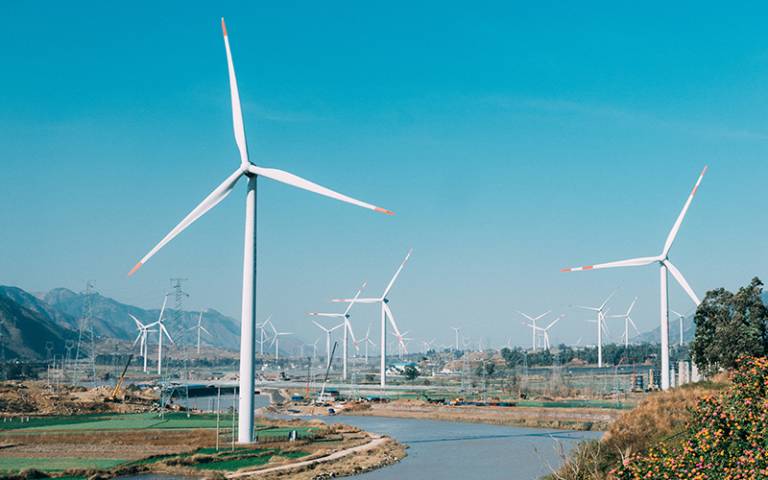4-year UCL funded PhD studentship in embodied emissions standards
20 June 2022
Carbon intensity product standards are emerging as promising instruments for addressing greenhouse gas emissions embodied in products. Thorough analysis of recently adopted policies will help to accelerate learning in this key area of climate policy.

Jump to: Background | Studentship aims | Person specification | Application procedure | Contacts
Background
Industrial sectors will need to be almost fully decarbonised if climate change targets are to be met. Whilst decarbonisation of many of these sectors is technically possible, the scaling up and widespread deployment of technical solutions is still at a very early stage. Existing policy instruments largely fail to deal with ’hard to abate’ sectors such as steel and cement. More ambitious and tailored policies and regulations will be required.
Generic economy-wide carbon pricing policies are very unlikely to provide a sufficiently strong incentive for industrial decarbonisation at the scale and speed that is necessary. Even the successful implementation of border carbon adjustments as a measure against carbon leakage could still result in a price too low for triggering the radical innovation needed. Therefore, more specific policies will be required. Maximum intensity standards for the carbon embodied in products can be a meaningful alternative or complement to carbon pricing, with the advantage that they can be adopted in targeted and flexible ways at different levels of government.
Recently, several European countries have introduced embodied emissions standards for buildings and California has adopted embodied emissions procurement criteria for construction materials – a key sector for industrial decarbonisation. These policy innovations present an important opportunity for accelerated evaluation and policy learning.
Studentship aims
The PhD would examine the implementation of standards so far in Scandinavia and the Netherlands - and learn lessons for future policy, in particular for the UK. Buy Clean Legislation in the USA may also play a role. The empirical analysis should ideally feed into a regulation-theoretical considerations on the potential role of embodied carbon standards in policy instrument mixes.
The holder of the studentship will be required to undertake teaching and related duties for 25% of their time.
Person specification
Applicants should meet the Sustainable Resources MPhil/PhD programme entry requirements.
Applicants should have an excellent masters level degree in economics, political science, building science or a related field, and a strong interest in climate policy.
All applicants must also meet the minimum language requirements of UCL.
Application procedure
Eligibility and how to apply
Please submit a pre-application by email to bseer-phd-admin@ucl.ac.uk with Subject Reference: '4-year PhD studentship Embodied emissions standards'.
Your pre-application should include the following:
- A covering letter clearly stating why you wish to apply for the project outlining how your interests and experience relate to it
- CV
- Complete our Fees and EDI questionnaire via the linked Microsoft Forms
Interview process
Only shortlisted applicants will be invited for an interview.
- For the interview shortlisted candidates will be asked to send proof of their degree certificate(s) and transcript(s) of degree(s), and evidence of their fees background.
- Interviews will be held online using Microsoft Teams.
- The interview panel will consist of members of the supervisory team.
- Following the interview, the successful candidate will be invited to make a formal application to the UCL Research Degree programme for the Institute for Sustainable Resources.
The Successful candidate will be undertaking this project in UCL at the main (Bloomsbury) campus. For more information, please visit the UCL Institute for Sustainable Resources website.
Deadline for applications
Sunday 17 July 2022 23:59PM (UK time)
Interviews week commencing
TBC
Contacts
For further details about the admission process, please contact: bseer-phd-admin@ucl.ac.uk
For any further details regarding the project, contact Dr Nino Jordan: nino.jordan@ucl.ac.uk
 Close
Close

